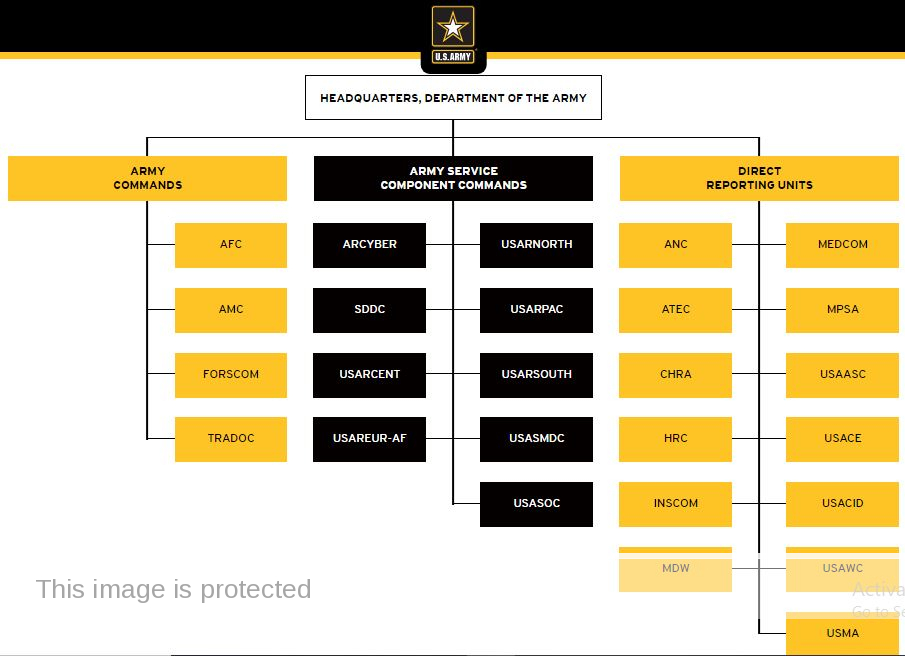How to Join the United States Army as a Citizen and Foreigner
Are you interested in knowing U.S. Army recruitment process and portal, online application form requirements, job vacancies news, positions, careers, opportunities, and employment program?
If YES, then this article is only what you need to read today.
The steps in this article will help you join the U.S. Army as a citizen in the United States of America, and as a foreigner from the United Kingdom, Canada, Australia, Singapore, Germany, Netherlands, Sweden, New Zealand, India, Pakistan, The Philippines, Brazil, Nigeria, South Africa, Ghana, Cameroon, Egypt, Ethiopia, Tanzania, Kenya, Zambia, Zimbabwe, Uganda, Senegal, Dubai, Malaysia, Turkey, Tunisia, Portugal, Italy, Romania, and perhaps anywhere else in the world.
U.S. Army
The U.S. Army, as one of the three military departments (Army, Navy and Air Force) reporting to the Department of Defense, is composed of two distinct and equally important components: the active component and the reserve components.
The reserve components are the United States Army Reserve and the Army National Guard.
Regardless of component, the Army conducts both operational and institutional missions.
The operational Army comprises numbered armies, corps, divisions, brigades, and battalions that conduct full spectrum operations around the world.
The institutional Army supports the operational Army.
Institutional organizations provide the infrastructure necessary to raise, train, equip, deploy, and ensure the readiness of all Army forces.
The training base provides military skills and professional education to every soldier – as well as members of sister services and allied forces.
It also allows the Army to expand rapidly in time of war.
The industrial base provides world-class equipment and logistics for the Army.
Army installations provide the power-projection platforms required to deploy land forces promptly to support combatant commanders.
Once those forces are deployed, the institutional Army provides the logistics needed to support them.
Without the institutional Army, the operational Army cannot function.
Without the operational Army, the institutional Army has no purpose.
The Army mission is vital to the Nation because it is the service capable of defeating enemy ground forces and indefinitely seizing and controlling those things an adversary prizes most – its land, its resources and its population.
The mission is to deploy, fight and win our nation’s wars by providing ready, prompt, and sustained land dominance by Army forces across the full spectrum of conflict as part of the joint force.
U.S. Army Command Structure

4 Ways to Serve in the U.S. Army
1. Go Army
The Army is a key component of the U.S. Armed Forces, providing expeditionary land forces wherever and whenever they are required.
Working with the U.S. Department of Defense, the Army trains and equips soldiers and creates leaders among them to rapidly respond when they are called upon to serve the nation.
2. National Guard
The National Guard is an elite group of warriors who dedicate a portion of their time to serving their nation.
Each state has its own Guard, as required by the Constitution; in fact, it is the only branch of the military whose existence is required by the Constitution.
3. Army Reserve
The Army Reserve is playing a critical role in the army’s transformation.
With over one million Soldiers available, the Army Reserve provides a highly skilled, flexible force that can support the Army when and where they are needed most – it is a multi-component unit force, training with Active and National Guard units to ensure all three components work as a fully integrated team.
4. Civilian Service
The Army offers abundant opportunities for challenging and rewarding civilian employment in virtually all career fields and in all parts of the world.
Whether you are a student, a recent graduate, a veteran, a current Federal employee, or a U.S. citizen without federal experience, the Army has a job for you.
U.S. Army Recruitment Requirements
There are certain requirements you must meet to enlist or become an Army Officer in the United States.
These are the eligibility requirements to join the U.S. Army.
1. Enlisted Soldiers
Enlisted Soldiers are the backbone of the Army, responsible for carrying out orders and ensuring the success of their unit’s mission.
Here are the requirements to become an enlisted soldier:
- Be between 17-35 years old.
- Medically and physically fit, and in good moral standing.
- A U.S. citizen or permanent resident with a valid Green Card.
- A high school graduate or equivalent.
- Get a minimum score on the Army’s placement exam.
2. Officers
Army Officers are the leaders of the U.S. Army, tasked with making important decisions and being responsible for the safety of Soldiers under their command.
Here are the requirements to become a commissioned officer:
- At least 17 in age, but under 31 in the year of commissioning as an officer.
- Medically and physically fit, and in good moral standing.
- A U.S. citizen or permanent resident with a valid Green Card.
- Be a college graduate by the time you’re commissioned as an officer.
- For security clearance, complete a background check, fill out a questionnaire, be interviewed, and provide records.
Common Questions about Eligibility and Requirements
Age
The age requirements for joining the U.S. Army depend on the path you take, and they exist mainly to ensure you’re able to succeed in a challenging environment.
Can I join the Army if I’m older than the maximum age requirement?
The maximum age to join the U.S. Army as an enlisted soldier is 35, while officers must accept their commission before age 31.
However, the Army can lift some restrictions based on the need for certain roles to be filled.
It’s possible to receive an age waiver if you retire with 20 years of military service by age 55.
Medical and Physical
Maintaining physical, mental, and emotional health helps you succeed in the Army.
These requirements make sure you’re prepared to carry out your duties.
Can I join if I have a medical disqualification?
You can still join with a medical disqualification if you get a medical waiver, which is issued on a case-by-case basis.
Are there any restrictions on tattoos?
You can have tattoos almost anywhere on your body, with a few exceptions.
There are some limits to the size and number of tattoos on highly visible areas like the hands, neck, and behind the ears.
Tattoos on the mouth, ears, or on the eyelids are not allowed. It’s possible to get a waiver sometimes.
However, tattoos anywhere on your body that are extremist, racist, sexist, or otherwise indecent aren’t allowed, no exceptions.
Can I still join if I have asthma, poor vision, or poor hearing?
Asthma will only prevent you from joining if you were diagnosed with it after your 13th birthday.
Hearing, vision, and asthma qualifications are usually determined by medical exams and are not service-specific.
You can still request an asthma, vision, or hearing loss waiver if a doctor denies your application.
Can I join if I have ADHD?
Yes. It will only prevent you from joining the Army if you’ve been treated with ADD/ADHD medication within the last year, or if you display obvious signs of the condition.
Will my height or weight prevent me from joining?
Height and weight restrictions vary by age and gender.
Are there any physical fitness requirements to join?
You won’t need to meet any physical fitness requirements before joining the Army as an enlisted soldier.
There are requirements if you join through ROTC or another officer path – your recruiter will provide the details.
Everyone will need to pass the Army’s fitness test after joining, and again every year of service.
Education
Enlisted soldiers need to have a high school degree or equivalent to join, while officers need a college degree by the time they are commissioned.
To enlist, you’ll also need to meet a minimum score on the Army placement exam, the Armed Services Vocational Aptitude Battery (ASVAB).
It’s recommended you check the requirements of your preferred job, since some specific jobs also require minimum scores.
Can I no longer join if I score too low on the ASVAB placement exam?
Not necessarily. The Army understands some circumstances can affect your ability to score well, and a waiver can be requested in those situations.
Values and Character
Candidates will be expected to follow and uphold the Army’s code of conduct if they want to join.
These include the Army’s seven values: Loyalty, Duty, Respect, Selfless Service, Honor, Integrity, and Personal Courage.
If I have a previous felony or a conviction, can I still join?
Felons and those with several convictions can’t join the Army, but moral waivers or felony waivers are available sometimes.
What offenses or moral behavior-related issues can’t be waived?
The offenses and moral behavior-related issues that cannot be waived include:
- If you are under civil restraint, including parole, confinement, or probation.
- If you are subject to civil court conviction or adverse disposition for more than one serious offense, or serious offenses with three or more other offenses (apart from traffic).
- If you are found trafficking, selling, or distributing narcotics, including marijuana.
- If you have three or more convictions related to driving while intoxicated, drugged, or impaired in the past five years before joining.
- If you are convicted of five or more misdemeanors.
- If you cannot pass a drug or alcohol test, or if you have current charges pending against you.
Citizenship
Although the U.S. Army wants people from all different backgrounds and experiences, all candidates must be a U.S. citizen or permanent resident with a valid Green Card, (officially known as a Permanent Resident Card).
What can I do if I don’t meet the eligibility requirements to join?
The U.S. Army has a waiver process you can take advantage of to prove you overcame a disqualifying issue that would otherwise prevent you from joining the Army.
After submitting a waiver, a review takes place to make sure you can join.
If your waiver is denied, you can also look into pursuing a civilian career within the Army.
Can non-U.S. citizens join the Army?
Enlistment into any branch of the U.S. military, by citizens of countries other than the United States is limited to those foreign nationals who are legally living in the United States and possess a Bureau of Citizenship and Immigration Services Alien Registration Card (INS Form I-151/551 – commonly known as a “Green Card”).
Applicants must be between 17 and 35; meet the mental, moral, and physical standards for enlistment and must speak, read, and write English fluently.
The U.S. military branches cannot assist foreign nationals in obtaining admittance into the United States.
Questions concerning immigration to the United States should be asked of the U.S. Embassy.
Only after immigration procedures are completed and an applicant is legally living in the United States may an application for enlistment be accepted.
The U.S. Government agency which handles immigration and naturalization is the Bureau of Citizenship and Immigration Services within the Department of Homeland Security.
Limitations on Noncitizens
If you join the U.S. Army as a noncitizen, enlisting can speed up your path to full citizenship.
Until you become a citizen, your military career is limited.
You cannot re-enlist, get a security clearance, or qualify for overseas assignments except as a citizen.
If you want to become an American citizen, military service waives some of your requirements:
For example, you do not have to be physically in the U.S. if you are stationed overseas.
Final Words
To stay updated regarding the U.S. Army recruitment process, keep visiting this website regularly.
We also recommend that you bookmark or save this page and refresh it regularly in case of any change, and we will update you as soon as that happens.
I wish you success in your application.






